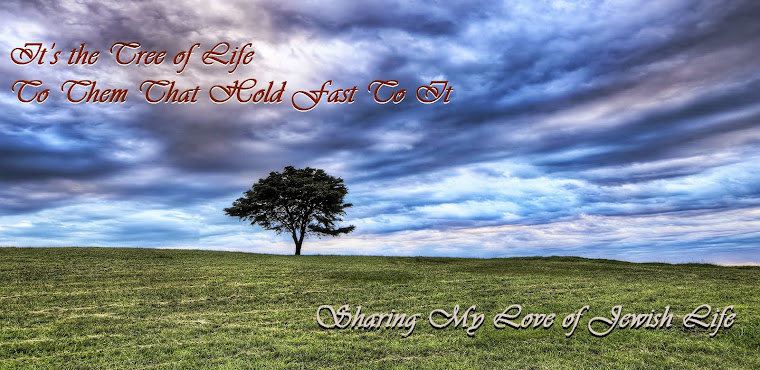Like all of the parshiot in Bereshis, a lot happens in Parshas Vayishlach. Indeed, the action moves so fast that it is easy to react to the overview and not stop for the details. For instance, Yaakov’s introduction of his divided camps.
Let’s be honest. By the time you get to Bereishis 33:6, you’ve been disarmed by the text. Chapter 33 begins with the dramatic: “And Yaakov lifted up his eyes and he saw…” Not just a simple coming upon, but a marked recognition of a serious situation. Esau arrives with 400 men, and Yaakov quickly jumps to an earlier thought to divide the camp. He then approached his brother alone, bowing deeply and repeatedly. And Esau appears to embrace him, to welcome him home and rejoice in their reunion. Then, rather than rehash old arguments or resume the path of threatening Yaakov’s life, Esau asks after children.
“Then the maids and their children came forward and bowed, next Leah and her children came forward and bowed low, and last, Yoseph and Rochel came forward and bowed” (33:6-7). It’s a flash of two verses that usually procure the most attention for being seen as a demonstration of the household hierarchy. There is Rochel at the back with her one little child, specially protected. Shouldn’t Leah’s many children be protected more? And what of poor Bilha and Zilpa, whose status as wives appear to be negligible?
In translation, the language of verses 33:6-7 seems dully repetative. In the Hebrew, however, there is a bit more variation in the words, and those variations are fascinating. Let’s look at the word for “come forward.” Verse 6 uses the feminine plural to describe the maid servants and their children stepping forward. This usage makes sense and is similar in its usage as the use of the feminine singular to describe Leah and her children coming forward. In both cases, the verb indicates the action of the women only and does not include their children. To describe the plural would, in both places, require the male plural version since a mixed gender group takes a male attribute in conjugation. However, the end of verse 7 states nigash Yoseph v’Roachel, nigash being a slightly different, more passive, form of the word meaning “come forward.”
Another significant difference is that whereas the male – or mixed gender – group conjugation is used in vayishtaachavu, and they bowed down, for both Leah and Rochel’s group, Verse 6, uses the slightly strange form of vatishtachavenan, the meaning is the same, but why not use the same verb and format as in the next verses?
The third alteration in the format of the verses is in order. In verse 6 it says the maids and their children. Verse 7 continues with the approach of Leah and her children. But the final phrase places Yosef before Rochel.
Several commentaries understand the different gender uses of vayishtaachavu as a means of learning about the behavior of the children and how they saw themselves, particularly the children of the handmaids. The Daas Zkainim notes that in verse 6 “the emphasis in this verse is on the servant maids, to tell us that their children did not prostrate themselves. They considered their respective mothers as socially inferior to themselves. On the other hand, when the children of Leah observed that their mother prostrated herself, they followed their mother’s example and did likewise.”
Rabbi Shimshon Raphael Hirsch notes on verse 33:2, where the act of separating is first presented, that “It is possible that his feelings and greater affection directed this order, but it is by no means necessary to assume that this was the reason for it.” Rav Hirsch goes on to look at the different forms of the verb for bowing and explains that the haindmaids and their children came first and bowed together because: “Through their whole origin and past they were accustomed to bow before much less feared persons.” Their bowing was a direct correlation to the status of these women, and so the word used is vayishtachavenan and not vayishtaachavu. He continues on: “Then Leah stepped forth, the noble, proud, self-conscious wife, the mother and keeper of the household. A Leah does not bow down before an Esau, the children do it.” Thus the lack of the feminine in the word for bowing. “Then Rachel and her child should have come to the fore, but Yoseph protectingly steps in front of his mother as her knight, and Rachel, afraid that Esau would take offence, quickly bows to disarm him, so that Yoseph should also bow, and so both of them bow.” This not only explains why mixed gender plural is used for bowing, but also the strange use of the niphal for coming forward and the placement of Yoseph before Rachel. Rav Hirsch concludes: “Therein the motive for arranging the order of their approach may also lie. Yaakov let the maidservants go first because he could quietly reckon on their behaving with due humility. Rachel and Yoseph last because he expected the least from them.”
It might also be interesting to reflect that Yaakov might, perhaps, have placed Leah in the middle as a protection for her. He was certainly aware of the hours she had spent crying over her fear of marrying Esau, as noted in the Midrash. Now he was confronting Esau with the woman who he might perhaps have felt he had a right to. Yaakov therefore presented first the maidservants and their children, deflecting any quick reaction as Esau received their greetings, and then he brought forward Leah, so as to downplay her as his wife. He left Rachel for last so that Esau’s final impressions of his family would not be focused on Leah.
We cannot know exactly what thoughts went through the minds of the patriarchs and matriarchs. We can however, realize that life for them or for us, is rarely as simple as choosing whom one likes better.
